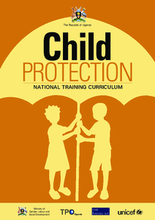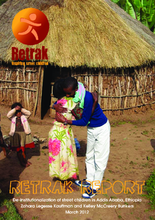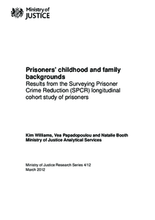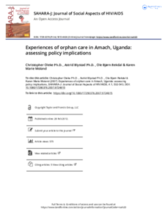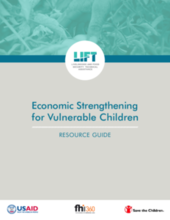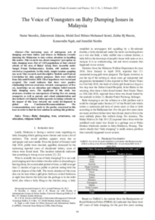Displaying 12801 - 12810 of 14348
Over the past two decades of humanitarian work in northern Uganda, national and international child-focused organisations as well as government departments responsible for children have built a rich body of knowledge that has informed child protection work throughout the country. The development of this Child Protection Curriculum and related training materials is therefore a first step by the Ministry of Gender, the Ministry of Labour and Social Development, the United Nations Children’s Fund (UNICEF), the Child Protection Working Group in Uganda, and selected academic institutions to professionalise the child protection sector within the broader realm of social work in Uganda.
The study was carried out in Addis Ababa, Ethiopia. The purpose of this research is to utilise information collated from literature review as well as informant interviews and focus group discussions to identify good practices or help inform the development of such practices aimed at assisting street children currently residing in institutional care to return to a family-based environment.
This report presents findings of a study on the childhood and family backgrounds of 1,435 participants who were newly incarcerated in 2005 and 2006 in the United Kingdom. The report has a special focus on the experiences of abuse and care placement in childhood.
The National Family Preservation Network (NFPN) recently released its family assessment tool designed for use in Least Developed Countries (LDC). The tool aims to help a variety of workers serving families in least developed countries by providing methods and approaches to enhance family strengthening.
In the next few years, the Rwandan government hopes to close the majority of the country’s children’s homes. Rwanda’s so-called "child deinstitutionalization" (DI) policy, which, despite initial concerns, is attracting global support.
This paper presents findings from a study on the experiences of orphan care among Langi people of Amach sub-county in Lira District, northern Uganda, and discusses their policy implications.
Knowledge transfer is highlighted in this paper as a conceptual framework to understand mandated referral to Early Intervention (EI) services for young children with open child welfare cases.
"President Ellen Johnson Sirleaf today officially launched the Children’s Law of Liberia to protect children and their right to participate meaningfully in their development," says this press release from UNICEF.
This is a resource guide designed for PEPFAR implementing partners to help them effectively design and implement economic strengthening activities for vulnerable children. The guide lists gender, age, social inclusion, conflict, accessibility, chronic illness, and environment as reasons that certain children and households are vulnerable.
This article describes research conducted in Malaysia on young people’s perceptions of “baby dumping,” or the abandonment of newborns and infants, a phenomenon that has become a “serious issue” in Malaysia.

